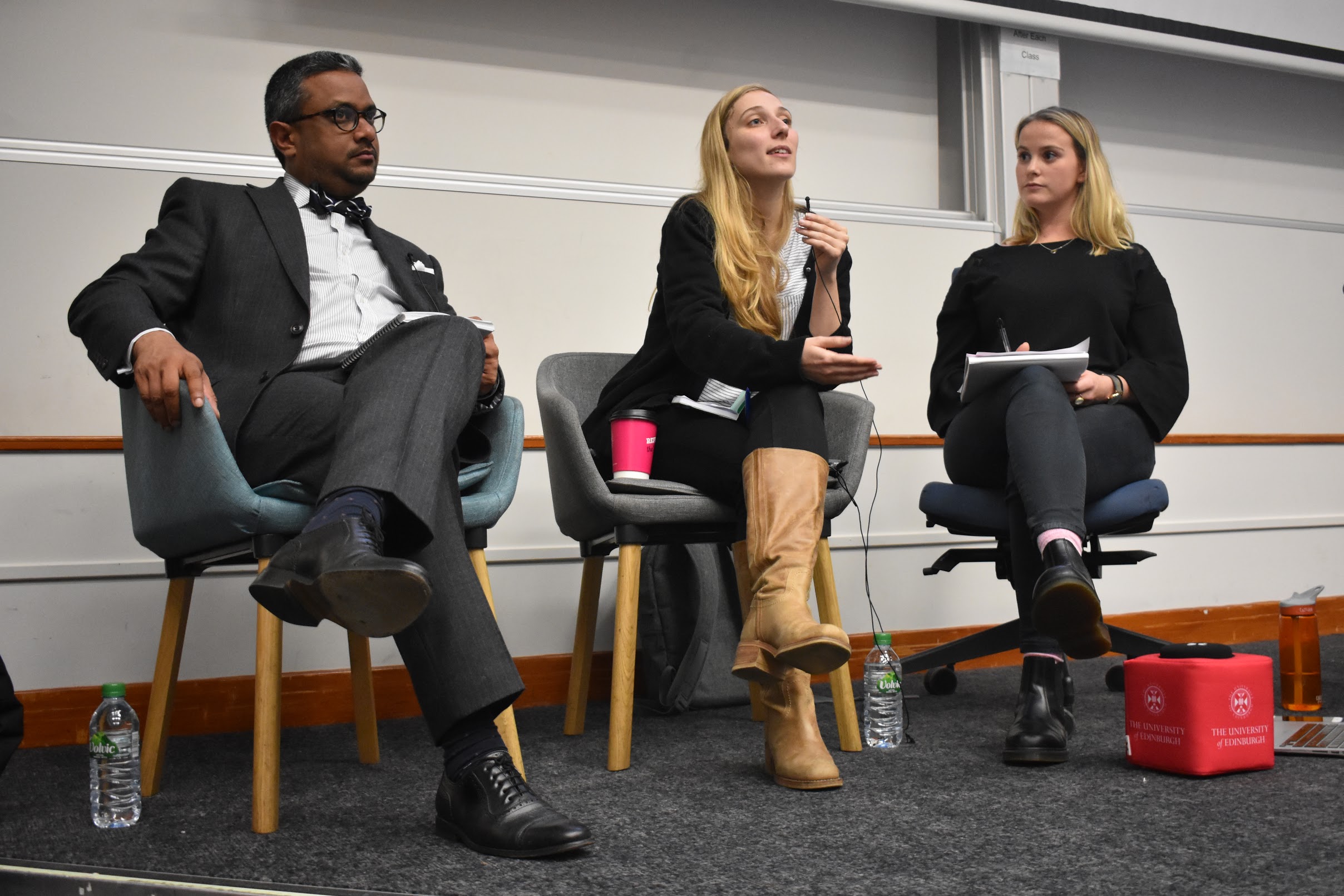On Tuesday October 10, Carles Puigdemont, President of the Catalonian government, addressed the parliament announcing that he would continue to seek self- determination for the region. He didn’t, however, fully issue a declaration of independence.
As these events were unfolding in Barcelona, Edinburgh University’s Political Union (EPU) hosted a panel event to discuss the issue.
The discussion was followed by a question & answer session allowing the audience to ask about more specific concerns surrounding the topic.
The panellists included Dr Asanga Welikala, professor of Constitutional Law, and Alexandra Remond, a PhD student and an expert on independence referendums and secessionism in a comparative perspective.
In his opening, Welikala – mentioning the importance of this “outsider” perspective in analysing the situation – highlighted Spain’s turbulent past.
Spain’s constitution was created during its post-Franco era and granted the regions of Catalonia and the Basque country considerable autonomy.
Despite this, throughout the week following the constitutionally illegal referendum in Catalonia, Spain’s unity has been hanging from a thread with a “cat and mouse” game being played between Madrid and Barcelona.
During the panel discussion, Welikala drew parallels with similar situations around the world namely the recent vote for independence by the Kurds in Iraq.
When remarking on the violence that unfolded as a result of polling stations opening, Welikala commented that it was “utterly regrettable and shocking.”
He stated that the action taken by Prime Minister Rajoy “was self-defeatist” as the events “alienated people especially [since Spain is] a European democracy.
Adding to this Remond said, “What the Catalan government is doing is also questionable. . . [It is] hard to declare independence on a low turnout.”
The issue of Catalan independence has grasped international attention for decades due to the vast number of territories that are in similar situations, most notably Quebec in Canada and Scotland in the United Kingdom.
During the discussion, Remond said, “I don’t see Scotland wanting a referendum as a result of Catalonia.”
Elaborating on this, when asked what the effects of the events in Spain may have on Scottish plans for independence, Welikala told The Student, “I don’t think it’s going to have any direct effect at all, some people think this might wet the appetite for a second independence referendum but I cant see how that is going to happen.”
“If anything it is in the other direction because what we have seen is the whole idea of independence in Europe becoming very questionable as European Union member states do not seem to be encouraging this at all.”
“There is a fundamental difference in the way the host states have behaved, Spain behaves in a particular way, which we all criticise, the UK government behaved with great sense and maturity [during the Scottish independence referendum],” he concluded.
Vice President of the EPU, Emma Doyle, was the panel host during the discussion. When speaking to The Student about how the event was organised, she said “it went pretty fast because [the referendum] happened just last week so we had to ramble up and get speakers as soon as we could. It’s been quite intense and fun.”
“I basically tried to cover what the main issues were through looking at articles, we can’t go too deep, we would only allow that to happen in the Q&A.”
Image: Julio C. Othon

